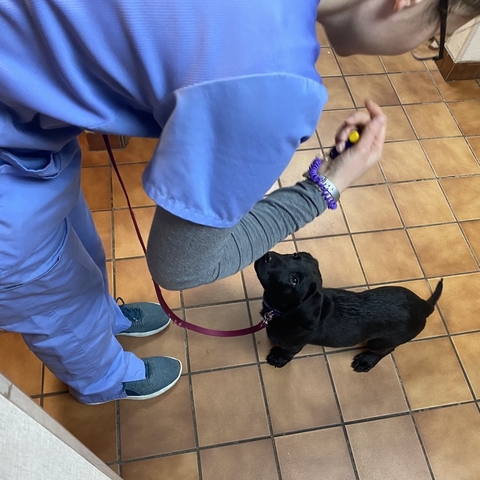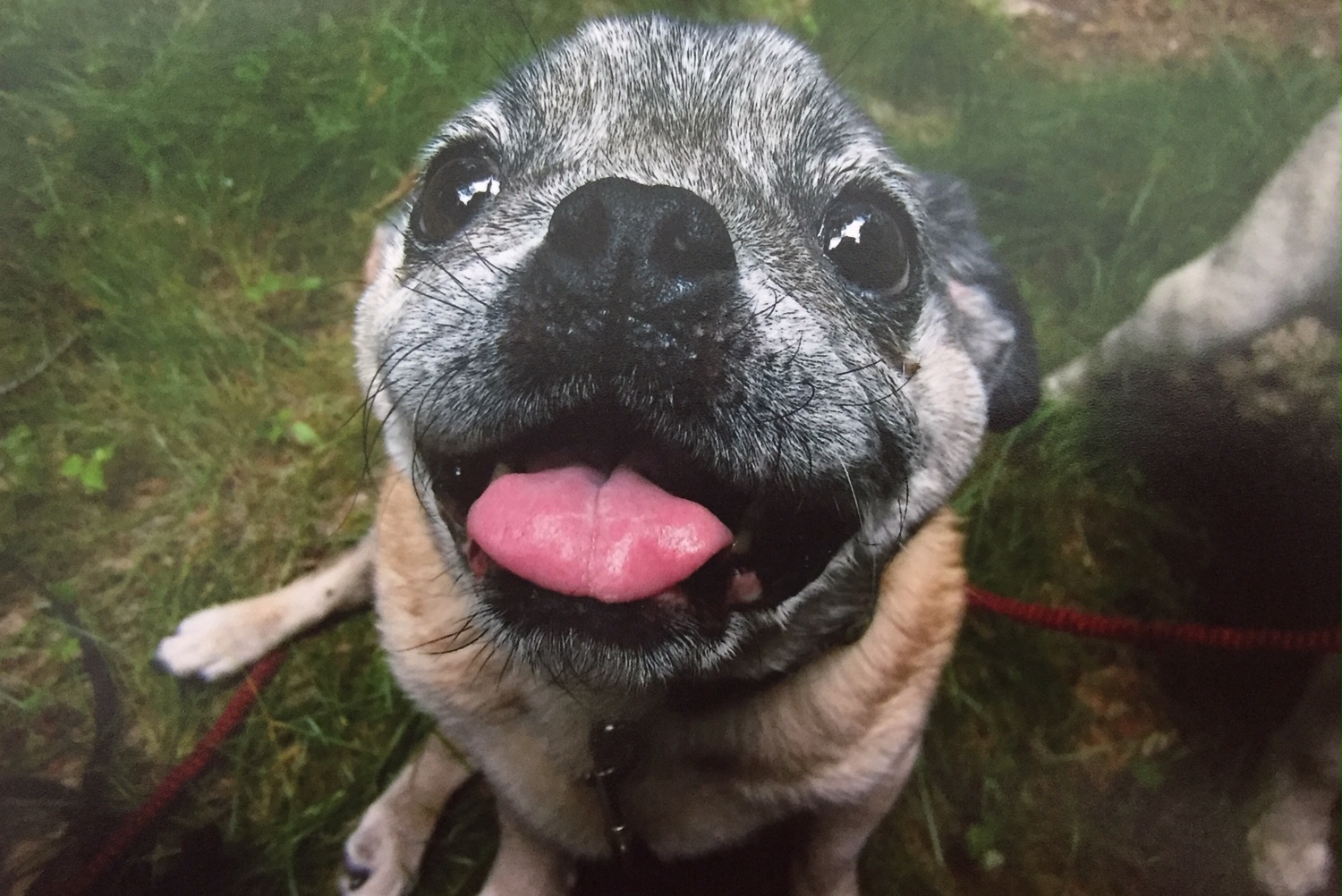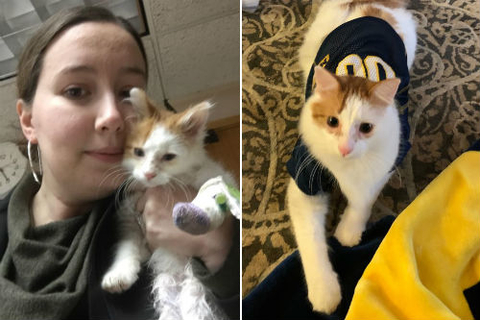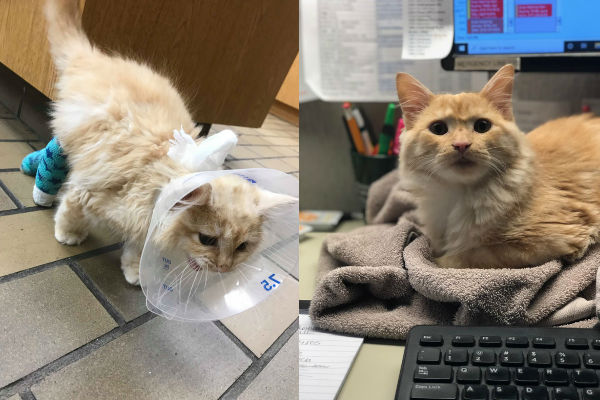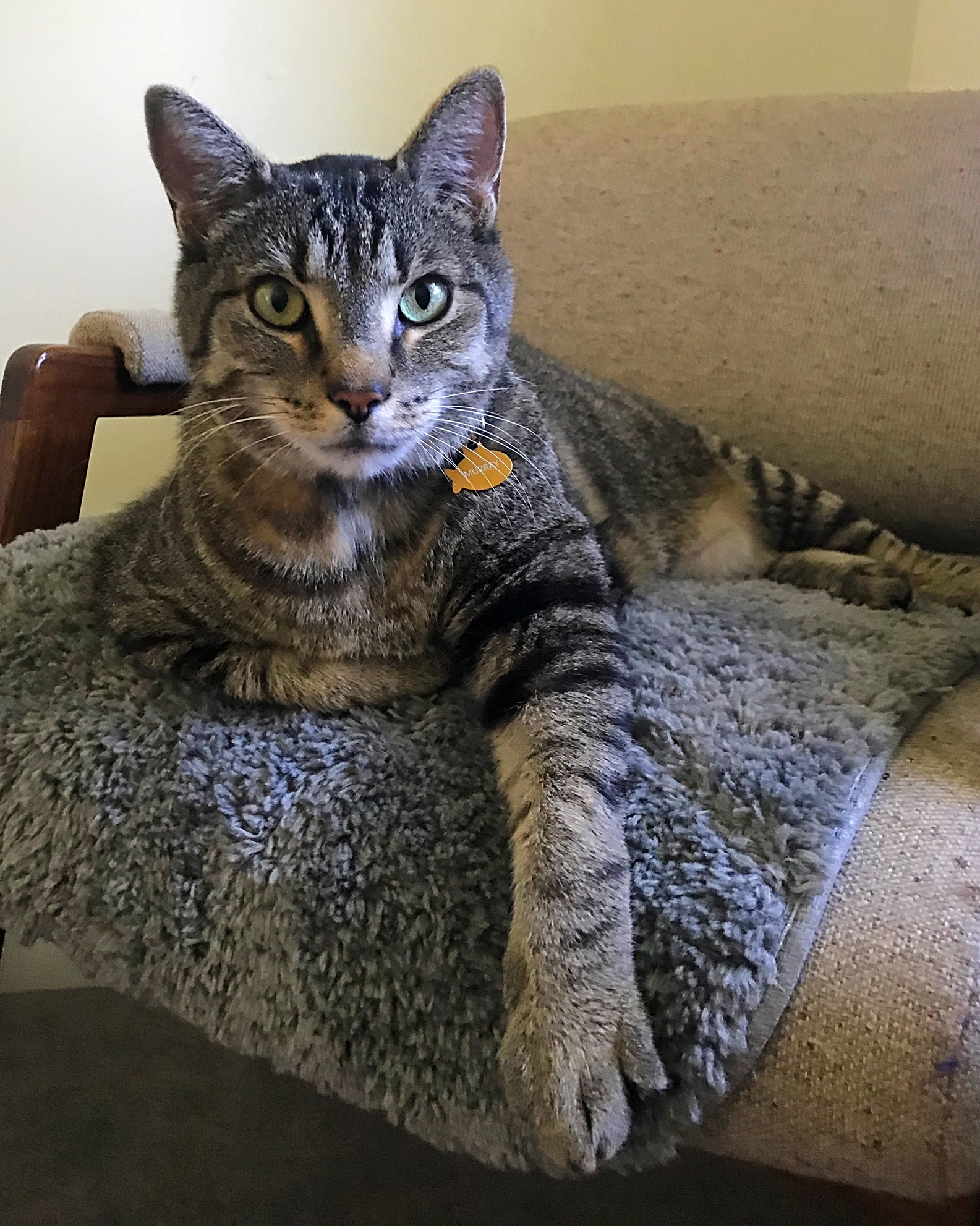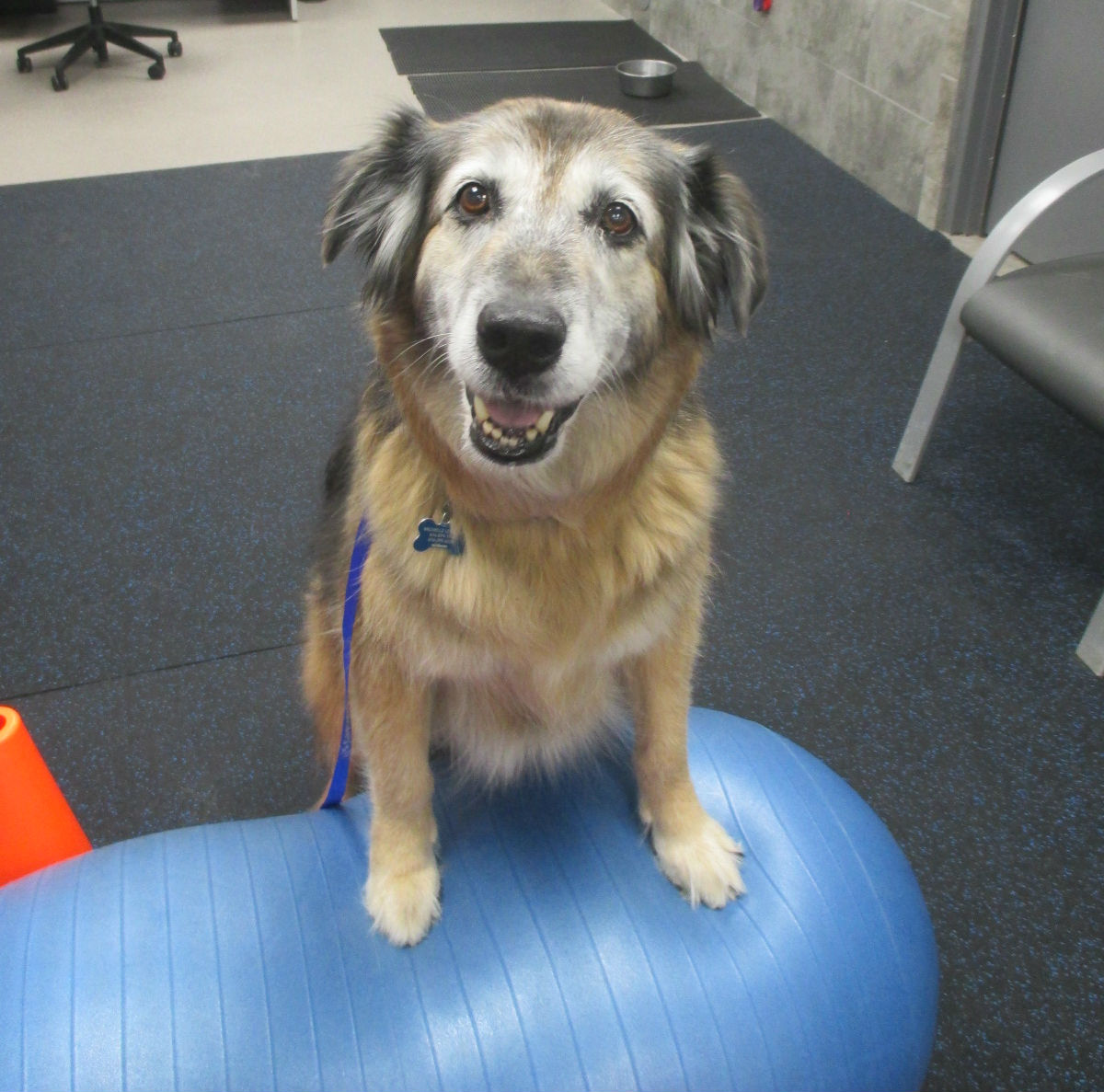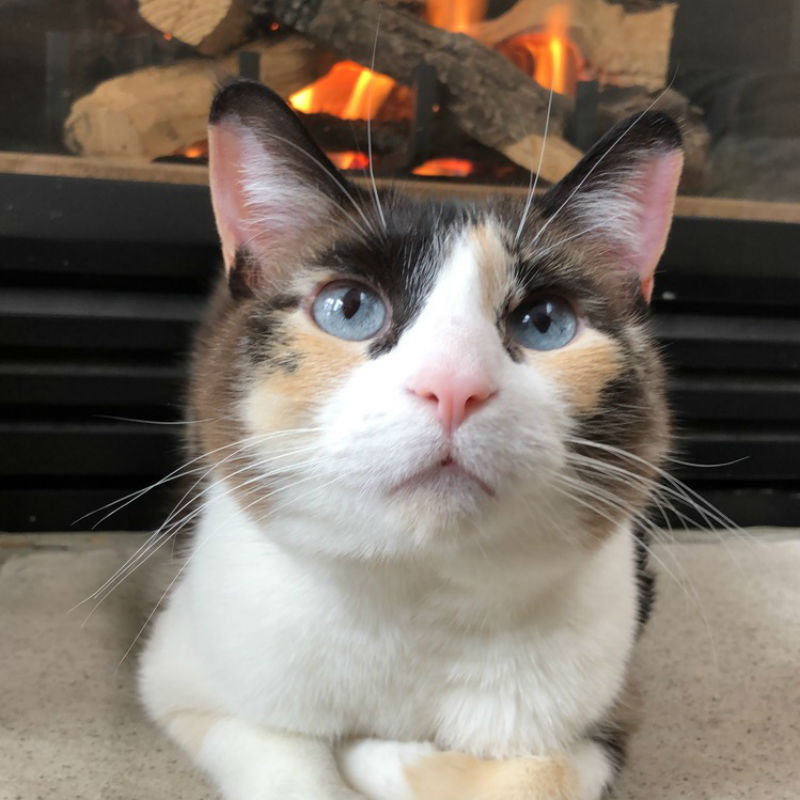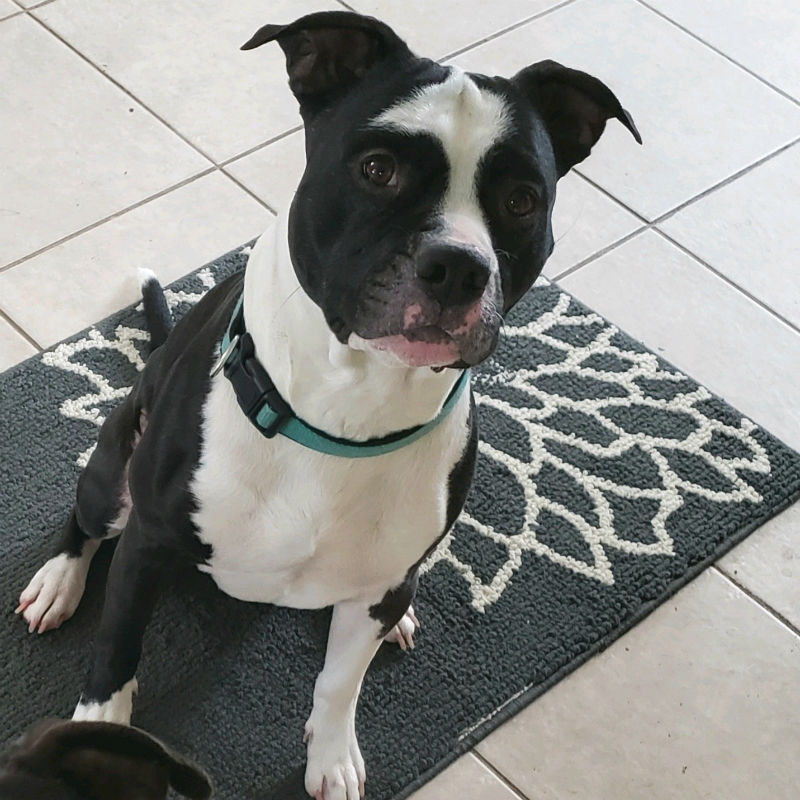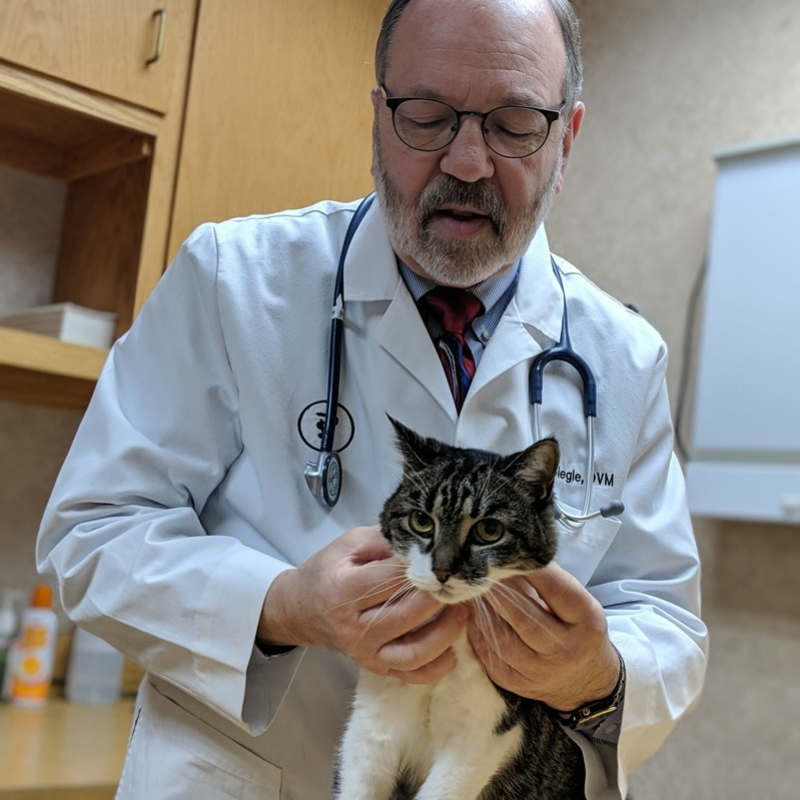Adorable, curious, and charming—puppies are hard to resist. People who choose to adopt them usually expect a wild ride, but many are still surprised at how just demanding puppies are and how much responsibility—and time—is involved in raising a puppy into a good dog.
There’s a strong temptation when looking for a new pet to overlook the older animals available in shelters or from rescues: why adopt an animal whose history you don’t know when you can “start fresh” with a young pet? But for many people, the rewarding benefits of adopting pets in their golden years are worth any disadvantages.
Buffalo Dip the cat rules the other animals in his household with his outsized personality. But just over a year ago, when he was a 12-week-old kitten, Buffalo Dip was so sick that his family was ready to say goodbye to their new pet.
His owner, Ashley, who is a Client Care Assistant at CHFA, says adopting Buffalo Dip was a dream come true. She’d been wanting to add a cat to her household for a while when a client brought in a tiny kitten and told her its littermate was also available for adoption and offered to bring the kitten to her from Traverse City. When her initially reluctant husband finally agreed, she jumped at the chance.
At first, the homeless kitten seemed to have the odds stacked against him. On May 23, a passerby discovered him crying out in pain at the side of a road. Seeing he was in bad shape, the Good Samaritan scooped him up and took him to a nearby 24-hour emergency veterinary hospital, where the staff found he had five broken metatarsals in his left rear leg and a significant abscess in his right groin. They also found puncture wounds that suggested he had been attacked by another animal.
Kayla knew something was very wrong with her newly adopted cat, Murray. Just a few weeks after she brought him home from the Humane Society of West Michigan this past June, he began vomiting everywhere and seemed to lose his appetite.
Owning a senior pet is a rewarding experience. It’s meaningful to watch your dog’s muzzle become grayer over the years as they mature from rambunctious, puppy-like behavior to being a calm, quiet canine companion. But the other side of senior dog ownership is seeing a beloved pet go through the natural challenges of aging: sore muscles and joints, more frequent illness, vision and hearing loss, and other health issues. When your dog is still loving life but having a tougher time getting around, your vet might recommend an appointment with certified canine veterinary rehabilitation nurse Emily Harkness at CHFA.
One morning, CHFA client Katelyn awoke to the unpleasant and frightening discovery that her cat, Alice, had thrown up in about seven different places all over the house. Even in her state of disbelief and worry, it didn’t take Katelyn long to connect the dots. She and her wife, Mette, had been painting the exterior of their home and left a paint brush in a bowl of water to soak it and keep it from drying out. At some point in the night, Alice, a member of the family since she was a kitten, must have ingested some of the paint-diluted water.
Summer is finally here and so are the mosquitos. But the scourge of our backyard cookouts and camping trips are more than just an annoyance. For pet owners and their canine companions, they can lead to a potentially deadly and certainly painful condition called heartworm disease. Brittny Taylor, a Client Care Assistant at Cascade Hospital for Animals, recently learned first-hand how difficult it can be to watch a beloved pet suffer from this terrible condition.
As she took her newly adopted dog Yodi to see Dr. Veneman at Cascade Hospital for Animals, Nicole was resigned to the idea that the 5-lb. Chihuahua would probably have to be put to sleep. After all, his problems seemed insurmountable: He could barely walk, he was badly dehydrated, his entire body was swollen, and his hair was falling off in large patches. “His whole body seemed to be shutting down,” Nicole said. “It’s just that his quality of life was so poor.” She had recently taken Yodi into her home on behalf of his previous owner, who was not able to care for him anymore.
Dr. Veneman was alarmed by Yodi’s condition. “He was anemic,” she said. “His red blood cell count was low. The symptoms he presented could have been from so many potential problems, including cancer.”
Looking back on more than 40 years as a veterinarian, Dr. Richard Siegle has seen a lot of change. Since he joined the practice in 1978, Cascade Hospital for Animals has grown from a small family veterinary practice to two clinics with 92 full- and part-time employees, and boarding, daycare, grooming, and training services. And now, with the Breton Village Animal Clinic relocating to a bigger facility soon and his son in his last year of veterinary school, Dr. Siegle has much to look forward to as well.


